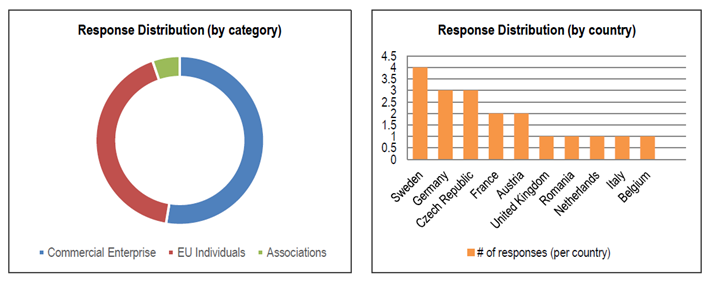The European Commission is currently seeking public comment as part of its review of the Restriction of Hazardous Substances in Electrical and Electronic Equipment Directive (Directive 2011/65/EU) (the RoHS Directive).
EEE is "equipment which is dependent on electric currents or electromagnetic fields in order to work properly and equipment for the generation, transfer and measurement of such currents and fields and designed for use with a voltage rating not exceeding 1 000 volts for alternating current and 1 500 volts for direct current".
This open scope of RoHS (with narrow exceptions and exemptions) includes both consumer and professional EEE such as household appliances, IT and telecommunications equipment, lighting equipment, among others.
On February 14 2022, the European Commission launched a public consultation on the revision of Directive 2011/65/EU on restriction of the use of certain hazardous substances in electrical and electronic equipment (RoHS Directive). The consultation is open for contributions until 2 June 2022. The results of the consultation will feed into the impact assessment supporting the review of the RoHS Directive.
The aim of the RoHS Directive is to reduce the risk to human and environmental health by restricting the use of certain hazardous substances in electronics which can be substituted by safer alternatives.
This initiative to review the RoHS Directive is part of the EU's Circular Economy Action Plan and contributes to the Chemicals Strategy for Sustainability and Zero Pollution Action Plan, which are key deliverables under the European Green Deal.
As part of the RoHS Directive's evaluation process, the European Commission has identified several issues relating to the practical operation of the RoHS Directive which this initiative will aim to address. In particular, the evaluation process reported that the RoHS Directive contains:
- Complex and impractical provisions relating to exemptions to substance restrictions
- An unclear process for reviewing the list of restricted substances
- Inconsistencies with existing EU regulations (for example: the REACH regulation and Eco-Design Directive)
- Difficulties in enforcement, notably in the context of e-commerce
- Unclear and outdated provisions to support the circular economy
The European Commission has proposed the following preliminary options which it is seeking input on, in order to address the issues noted above:
- Introduce new 'soft' measures, including updates to online FAQs to explain the interactions between the RoHS Directive and other EU legislation
- Revise the RoHS Directive in order to:
- Clarify and improve the exemption process
- Clarify and improve the restricted substances trigger
- Ensure coherence with other EU legislation
- Improve implementation and enforcement
- Transform the RoHS Directive into an EU regulation
- Repeal the RoHS Directive and incorporate its provisions into existing legislation
- Repeal the RoHS Directive and address product requirements related to the environmentally sound recycling and disposal of electrical and electronic waste in accordance with sustainable product legislation (in the context of the Sustainable Products Initiative to amend the Eco-Design Directive)
As of 15 April 2022, the EU had received 19 valid feedbacks from groups such as Member State authorities, business associations and companies including SMEs, non-governmental/civil society organisations, academia, individuals, workers associations and trade unions.
These responses are categorized as follow:
 There are a number of global RoHS requirements in place or going through their appropriate government process. They typically resemble the EU RoHS Directive (particularly the restricted substances and threshold), however, how manufacturers and importers comply is slightly different in each jurisdiction such as China, the United States, Japan, South Korea, UAE, etc.
The expansion of these regulations, in markets around the world, reflects a growing norm which requires companies to not only be aware of hazardous substances in their products, but also to ensure that they are eliminated or are only present in amounts that do not expose people or the environment to the risk of harm. In order to do this effectively, they must work with their supplier network, and also develop the ability to judge accurately the level of trust that can be placed in suppliers' claims and data.
As the world's leading testing, inspection, and certification company, SGS chemical experts can help you mitigate the risk of non-compliance to global and national restricted substances regulations.
Please contact our Customer Service Team for more information!
There are a number of global RoHS requirements in place or going through their appropriate government process. They typically resemble the EU RoHS Directive (particularly the restricted substances and threshold), however, how manufacturers and importers comply is slightly different in each jurisdiction such as China, the United States, Japan, South Korea, UAE, etc.
The expansion of these regulations, in markets around the world, reflects a growing norm which requires companies to not only be aware of hazardous substances in their products, but also to ensure that they are eliminated or are only present in amounts that do not expose people or the environment to the risk of harm. In order to do this effectively, they must work with their supplier network, and also develop the ability to judge accurately the level of trust that can be placed in suppliers' claims and data.
As the world's leading testing, inspection, and certification company, SGS chemical experts can help you mitigate the risk of non-compliance to global and national restricted substances regulations.
Please contact our Customer Service Team for more information!